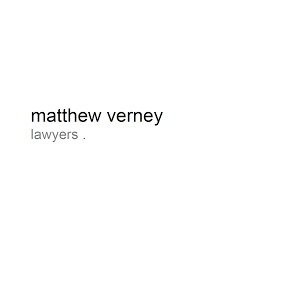Best Housing, Construction & Development Lawyers in Devonport
Share your needs with us, get contacted by law firms.
Free. Takes 2 min.
Free Guide to Hiring a Real Estate Lawyer
List of the best lawyers in Devonport, Australia
About Housing, Construction & Development Law in Devonport, Australia
The Housing, Construction and Development sector in Devonport, Australia is regulated by various laws and regulations. These are designed to ensure fair practices, public safety, quality control and compliance with environmental standards. This involves multiple stakeholders, including property owners, renters, developers, builders, surveyors, and government agencies. Australian law provides various protections for all these parties and regulates different aspects like zoning, building codes, landlord-tenant relationships, housing discrimination, and real estate transactions.
Why You May Need a Lawyer
In any Housing, Construction, and Development matter, it's prudent to seek legal advice. Reasons could be contract disputes, planning or zoning issues, negotiation with vendors or contractors, lease disputes, or claims of defect in construction. You also may need a lawyer to help with property transactions, understand an agreement before signing, or to represent you in any form of dispute or legal proceeding.
Local Laws Overview
Devonport, like all of Tasmania, is governed by state-specific laws along with some shared national laws. These cover Building Code of Australia compliance, land tenure system, laws governing residential tenancies, and environmental reviews among others. Knowledge of these local laws is crucial for those involved in Housing, Construction & Development to ensure that contractual obligations are fulfilled and individual rights and obligations are protected.
Frequently Asked Questions
What is the Building Code of Australia?
The Building Code of Australia is a part of the National Construction Code, which sets out the minimum requirements for the design, construction, and performance of buildings throughout Australia.
What are zoning laws?
Zoning laws are local council policies that govern how land in a particular zone can be used and developed. They define what activities are permissible or prohibited on land in a specific zone.
What if I have dispute with my tenant/landlord?
You should first try to resolve any issues directly with the other party. If the dispute cannot be resolved, you should seek legal advice. Tasmania has a Commissioner for Residential Tenancies who can provide advice and assistance.
What if I want to develop a property?
You will need to comply with various state and local regulations, obtain necessary permissions and potentially fulfill environmental review requirements. It's recommended to get legal advice before you start.
Can I enforce a construction agreement contract?
Yes, if the terms of the contract are breached, you have the right to enforce it, often through courts. A lawyer can provide advice on contract enforcement, dispute resolution, or if necessary, litigation.
Additional Resources
You could consult with the Building Standards and Occupational Licensing Department of Tasmania, the Australian Building Codes Board, the Residential Tenancy Commissioner or the Environmental Protection Authority Tasmania, for additional advice or resources related to Housing, Construction & Development.
Next Steps
If you need legal assistance in a matter related to Housing, Construction & Development, consider approaching a lawyer who specializes in this field. They can provide expert advice, navigate complex regulations and help to protect your interests.
Lawzana helps you find the best lawyers and law firms in Devonport through a curated and pre-screened list of qualified legal professionals. Our platform offers rankings and detailed profiles of attorneys and law firms, allowing you to compare based on practice areas, including Housing, Construction & Development, experience, and client feedback.
Each profile includes a description of the firm's areas of practice, client reviews, team members and partners, year of establishment, spoken languages, office locations, contact information, social media presence, and any published articles or resources. Most firms on our platform speak English and are experienced in both local and international legal matters.
Get a quote from top-rated law firms in Devonport, Australia — quickly, securely, and without unnecessary hassle.
Disclaimer:
The information provided on this page is for general informational purposes only and does not constitute legal advice. While we strive to ensure the accuracy and relevance of the content, legal information may change over time, and interpretations of the law can vary. You should always consult with a qualified legal professional for advice specific to your situation.
We disclaim all liability for actions taken or not taken based on the content of this page. If you believe any information is incorrect or outdated, please contact us, and we will review and update it where appropriate.








